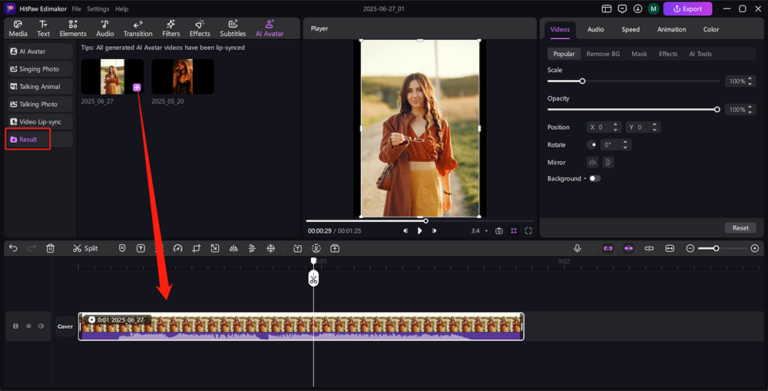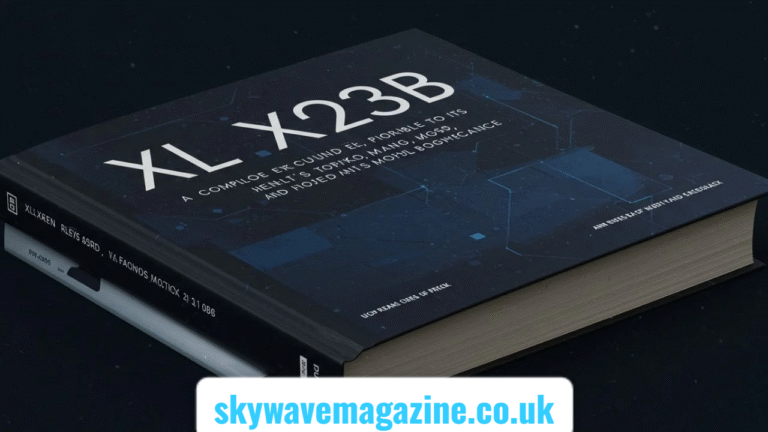
The phone number 01217511741 is a UK landline registered in Birmingham, often reported for unsolicited or suspicious calls. Many users describe it as a potential scam involving fake claims or compensation offers. It’s best to verify the caller’s identity, avoid sharing personal information, and report or block the number if any unusual activity occurs.
This comprehensive guide explores everything you need to know about 01217511741—its origin, reported activities, and safety tips. Numerous UK residents have received calls from this Birmingham-based number, many labeling them as scams or nuisance calls. Through analysis of user reports, call patterns, and platform data from sites like Truecaller and Phonely, this article explains how to identify red flags, verify authenticity, and protect yourself. Whether you’ve already been contacted or simply want to stay safe, this in-depth breakdown will help you understand what to do when unfamiliar numbers like this reach your phone.
Introduction: Why 01217511741 Is Being Searched Online
The number 01217511741 has sparked interest among UK phone users due to repeated unsolicited calls and mysterious outreach attempts. Many individuals have reported receiving calls related to compensation, energy claims, or false business promotions. While not every call from unknown numbers is fraudulent, this one has generated enough attention to warrant investigation. Understanding who might be behind such calls helps prevent identity theft, financial fraud, or simple annoyance. Our analysis examines verified data, user experiences, and protective strategies to clarify whether this number is legitimate or potentially harmful.
Number Origin and Basic Information
The 0121 prefix identifies Birmingham, a major telecommunications hub in the UK. Numbers like 01217511741 are categorized as landlines, often connected through Voice over IP (VoIP) services. These technologies allow organizations or individuals to make large volumes of calls quickly and cheaply. While this is common among businesses, scammers also exploit VoIP to disguise their identities. Data from reverse-lookup sites show that this number’s activity intensified over recent months, especially involving sales, energy claims, and suspicious verification requests, making it a recurring topic in phone safety discussions.
Caller Identity and Reported Behaviour
Online records reveal that the caller behind this number frequently presents themselves as a “claims advisor” or “energy specialist.” Several individuals mention being asked about diesel emissions, compensation, or boiler upgrades. However, when users request formal company details, callers often disconnect. This evasiveness indicates a lack of legitimacy. Some users have also received multiple calls per day, suggesting use of automated dialers. Although the number appears to originate from Birmingham, the true source could be a call centre using remote or cloud-based systems to appear local.
User Reports from Phonely and Truecaller
Phonely’s community feedback and Truecaller’s data show consistent patterns. The majority of reports classify this number as “suspicious” or “unwanted.” While a minority claim it might relate to legitimate surveys, most reviews warn about scam-like behaviour.
Common issues include:
- Aggressive telemarketing
- Attempts to gather personal information
- Fake compensation claims
- Calls continuing even after blocking attempts
These reports have given the number a negative community rating, reflecting widespread caution among recipients.
Common Themes in the Reported Calls
When evaluating hundreds of user complaints, certain themes repeat. Many calls start with generic introductions such as, “I’m calling about your recent claim” or “We have updates on your energy account.” This script-like behaviour points to automated scam operations. The objective is often to keep the recipient engaged until personal data can be extracted. Victims describe feeling pressured to confirm home addresses, dates of birth, or banking information. In rare instances, callers even claim to represent legal firms handling compensation. These repeated tactics align with known scam call models across the UK.
Also read this: Unmasking 01615650159: Full Caller Report and Scam Insights
Recognizing the Red Flags
There are several warning signs that indicate a possible fraudulent call.
Be cautious if you notice:
- The caller avoids giving full company identification.
- You are urged to act immediately without time to verify.
- They ask for personal or banking details.
- The tone becomes pushy or overly persuasive.
Recognizing these red flags early helps you avoid potential data theft or financial loss. Always remember: legitimate institutions do not demand instant decisions or confidential data over unsolicited phone calls.
How to Verify the Legitimacy of the Call
If you receive a call from this number, your first step should be independent verification. Search the number on trusted reverse-lookup sites such as Truecaller, WhoCalled, or Phonely. Compare details like the caller’s name, company, and purpose. Ask the caller to send written proof through an official business email or website before proceeding. If they hesitate, treat it as suspicious. You can also contact the organization they claim to represent using a verified phone number. Taking these small verification steps prevents manipulation through false urgency or fabricated authority.
Actions to Take After Receiving the Call
Should you answer and realize the call feels suspicious, end it immediately. Avoid engaging in argument or providing clarification.
Afterward, you should:
- Record the time and details of the call.
- Report the incident to Action Fraud UK or Ofcom.
- Block the number using your phone’s call-blocking settings.
- Warn others by posting feedback on lookup websites.
By acting quickly, you help authorities monitor scam activity and protect other users from falling victim to similar calls.
Why Scam Numbers Like This Persist
Scam operations like those linked to this number persist because of the low cost of modern telephony and VoIP services. Fraudulent operators can buy disposable virtual numbers that appear local, adding credibility. Enforcement agencies face challenges tracing these calls, as many originate outside the UK. Additionally, victims often ignore reporting mechanisms, allowing scammers to continue undetected. The persistence of numbers like 01217511741 underscores the need for public awareness, better reporting systems, and stronger regulatory monitoring of telecommunications providers across networks.
Legal Protection and Consumer Rights in the UK
UK law provides multiple protections against unsolicited or misleading calls. The Privacy and Electronic Communications Regulations (PECR) prohibit direct marketing without consent. The Information Commissioner’s Office (ICO) and Ofcom can fine companies violating these rules. Consumers may also register their numbers with the Telephone Preference Service (TPS) to reduce unwanted calls. If you suspect a scam, reporting to Action Fraud ensures the number is flagged for investigation. Exercising these rights helps maintain safer digital and telecommunication environments for all users nationwide.
Real User Experiences from Across the Web
Community feedback reveals consistent experiences. Many users report daily calls from this number, especially between 10 a.m. and 4 p.m. Some note that the caller uses different names, suggesting a rotating script. A few mention the phrase “diesel emissions claim,” implying a false compensation scheme. Others observe that when asked detailed questions, the caller quickly hangs up. This pattern of evasive responses and repetitive contact strongly implies an automated or semi-automated campaign designed to harvest data or gauge responsiveness for future targeting.
Possible Legitimate Scenarios
While the overwhelming evidence points to suspicious behaviour, it’s worth acknowledging alternative explanations:
- The number might have been reassigned to a new business.
- A genuine survey company could be testing outreach tools.
- Mis-dialled calls could be mistaken as spam.
- Old call lists from previous campaigns may still be circulating.
Despite these possibilities, the weight of public feedback makes it wise to treat such calls with skepticism until clear verification is obtained from credible, official channels.
Comparison Between Phonely and Truecaller Findings
When comparing information from Phonely and Truecaller, several similarities appear. Both platforms list this number as high-risk and categorize it under “unwanted” or “potential scam.” The number’s community rating on Phonely mirrors Truecaller’s spam index. Neither database associates it with a confirmed registered business. However, Truecaller occasionally updates records faster, reflecting global feedback trends, whereas Phonely focuses more on UK user input. Together, these tools create a strong evidence base suggesting this number is best treated as untrustworthy.
Preventive Habits and Safety Best Practices
Good call-handling habits are vital to prevent scam exposure.
Always remember to:
- Keep your personal and financial details private.
- Register with the Telephone Preference Service (TPS).
- Use caller ID and call-blocking apps for extra safety.
- Educate friends and family about identifying scams.
These practices build long-term awareness and reduce vulnerability. Staying informed through online communities and official updates strengthens public resistance to telemarketing abuse and fraud attempts that continue to evolve with new technologies.
Final Summary and Recommendations
In summary, the phone number 01217511741 is widely regarded as a suspicious or nuisance caller line associated with deceptive or unsolicited activity. While it technically operates as a Birmingham landline, its frequent misuse for claim-related scams raises serious credibility concerns. The best course of action is clear: do not share personal information, verify every claim independently, and report suspicious behaviour promptly. Protecting yourself through awareness and cautious communication ensures that such fraudulent tactics lose their power over time.
Conclusion
Although not every unknown number is malicious, evidence overwhelmingly suggests that calls from 01217511741 are linked to unsolicited and possibly fraudulent activity. Use official verification tools, stay cautious, and prioritize personal data security. By spreading awareness and taking proactive measures, individuals can help reduce the reach of unwanted callers and maintain safer communication habits in today’s interconnected digital landscape.
FAQs
1. Is 01217511741 a verified business number?
No. There’s no confirmed link to any registered company, making it likely a nuisance or scam number.
2. Can these calls cause financial harm?
Only if you share sensitive details. Avoid giving out personal or banking data during unsolicited calls.
3. How can I block or report the number?
Use your smartphone’s block option or report directly to Ofcom and Action Fraud UK.
4. Are such numbers common in the UK?
Yes. Scammers frequently use UK landline prefixes like 0121 to appear trustworthy and local.
5. What should I do if I already engaged with the caller?
Change your passwords, monitor bank accounts, and report the call to authorities immediately.
fore more info: skywavemagazine.co.uk





